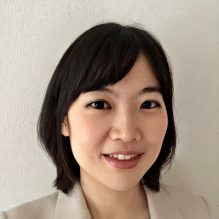-
About
- Kyoto Prize
-
Research Grants
-
Social Contributions
- Events
- News
This website uses cookies to improve the user experience. If you continue on this website, you will provide your consent to our use of cookies.
About
Research Grants
Social Contributions

Assistant Professor, Graduate School of Arts and Sciences, The University of Tokyo *Profile is at the time of the award.
2022Inamori Research GrantsScience & Engineering
The most exciting part of space geochemistry research is that we can touch the chemical evolution of about 4.6 billion years ago from a meteorite a few centimeters in size in front of our eyes. Through the research results of this grant, I hope to contribute to the development of space geochemistry and the intellectual property of humankind, and I will continue to make further efforts to convey to people the real thrill of this kind of research.
The analysis of noble gas isotopes in meteorites has revealed that, until approximately 50 million years after the formation of the solar system, temperature conditions of several hundred degrees Celsius existed locally or widely in the region outside the Jupiter’s orbit. Furthermore, isotopes with low condensation temperatures were homogeneously distributed in the protoplanetary disk before that, indicating that temperature conditions higher than 800°C were maintained.
Science & Engineering
